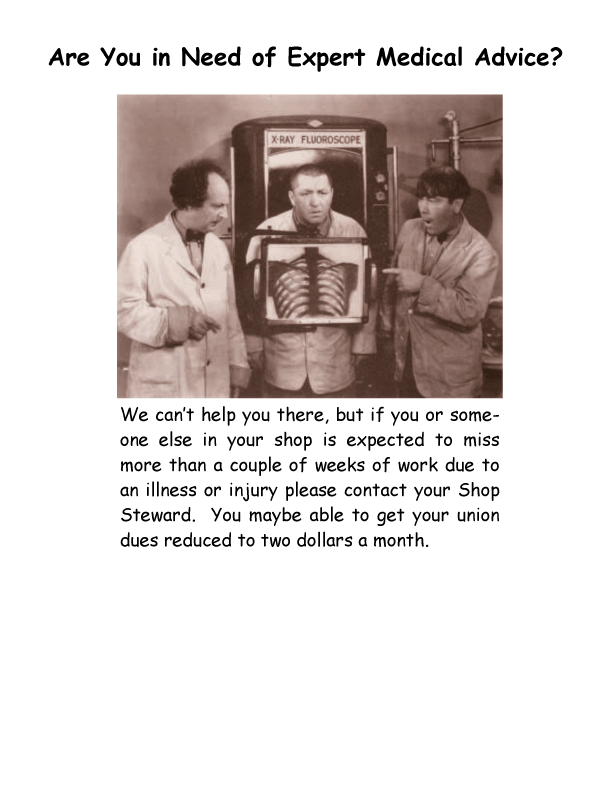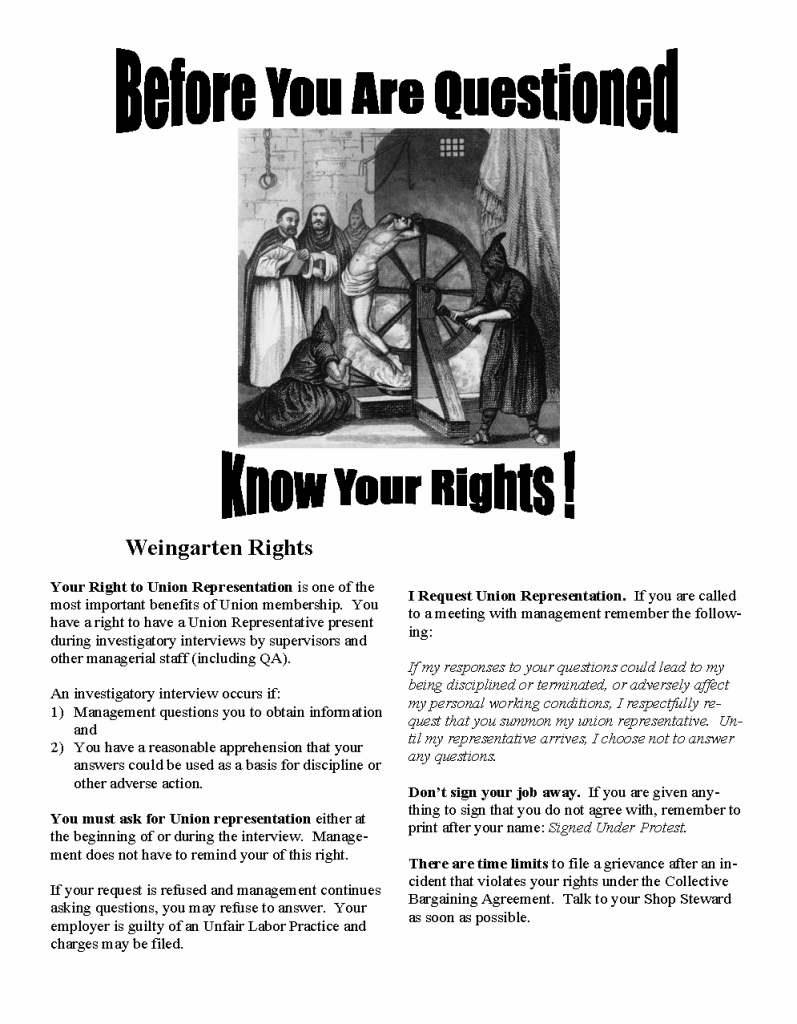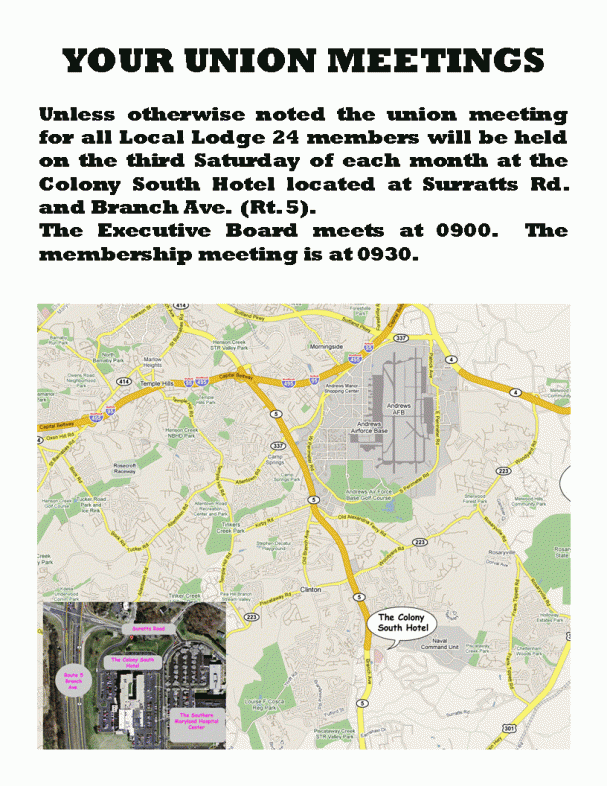Hey I want to file a grievance!
Shop Ste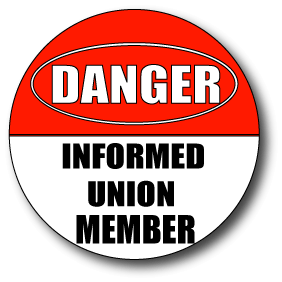 wards hear this on almost a daily basis. As a union member the ability to grieve is one of our most important rights. But what is a grievance? Can I grieve this? What do I have to know before filing a grievance are questions you might be asking yourself.
wards hear this on almost a daily basis. As a union member the ability to grieve is one of our most important rights. But what is a grievance? Can I grieve this? What do I have to know before filing a grievance are questions you might be asking yourself.
The first step is to read your contract. If you can’t find your copy you can find your contract online in the AndrewsIAM Library. Remember that there are time limits to filing a grievance, if you wait to long you may lose your rights. Next talk to your Shop Steward. If you do not know who your steward is you can check the Representatives Page. Remember in accordance with our Collective Bargaining Agreements only a Shop Steward or other approved Union Officer may present grievances to the company.
How do I know if I have grounds for a grievance?
1. Does it Violate the Contract?
Look at the union contract. While the meaning of a specific piece of contract language can be debated, you’re usually in a pretty good position to argue that a certain section or clause has been violated. Grievances based on a violation of the contract are often the easiest to win.
2. Does It Violate Past Practice?
Is what’s going on a violation of past practice? Even if something isn’t spelled out in the contract, if it’s been done that way for years, a change or crackdown may as well be a violation.
Let’s say an employer has always given a little slack to workers who arrive late during bad weather. All of a sudden he starts docking people who arrive even five minutes late when a blizzard is roaring outside. In such a case, you’ve got a pretty good past practice grievance on your hands. If you’re going to cite past practice as the reason for your grievance, be sure the practice has existed for a substantial period of time.
3. Does It Violate Employer Rules?
Has there been a violation of your employer’s own rules and regulations? Uneven enforcement of the rules can provide the grounds for a grievance.
For example, a worker caught smoking in a nonsmoking area can’t be fired if other people routinely do the same thing and are not disciplined.
4. Does It Violate the Law?
Your employer can’t violate the law. Even if your contract is silent on a specific issue, you still have the right to grieve if the employer does something illegal.
Let’s say your contract doesn’t speak to health and safety issues, but your boss orders you to do something that’s clearly dangerous. You don’t have to cite contract language as the basis for your grievance, you can point instead to state or federal occupational safety and health legislation.
5. Does It Violate Basic Rights?
Finally, you can have legitimate grounds for a grievance if a worker’s basic rights are violated. If there’s been discrimination you may have something to grieve. Discrimination occurs when two people are treated differently under the same conditions, in a way in which one of them is harmed or treated unequally. While the most common types of discrimination tend to be based on race or sex, there are other ways as well, including age, physical appearance, personality and union activity, for that matter.
Be aware that discrimination charges can be hard to prove. If you can base your case on contract language you’ll find your case a lot easier to pursue.
Discipline Grievances
If you were disciplined you may have grounds for a grievance. The company is obligated to apply the standards of Just Cause when disciplining an employee. Even if you were “guilty” of the offense that the company has accused you of, you still may have grounds for a grievance. It is important that you talk to your Shop Steward.
Just Cause is part of our Collective Bargaining Agreements. It is the major difference between a union member and a non-union (at-will) employee.
Retaliation
The company cannot retaliate against a union member for filing a grievance or for supporting their union.
If you have any questions please contact your Shop Steward, they are there to help.
 We are Local Lodge 24 of the International Association of Machinists and Aerospace Workers. Local 24 represents over 400 highly skilled men and women who work at Joint Base Andrews, Maryland, the home of Air Force One! We provide worldwide airlift and logistical support for the U.S. President, the Vice President, Cabinet members, and other high-ranking U.S. and foreign government officials.
We are Local Lodge 24 of the International Association of Machinists and Aerospace Workers. Local 24 represents over 400 highly skilled men and women who work at Joint Base Andrews, Maryland, the home of Air Force One! We provide worldwide airlift and logistical support for the U.S. President, the Vice President, Cabinet members, and other high-ranking U.S. and foreign government officials.

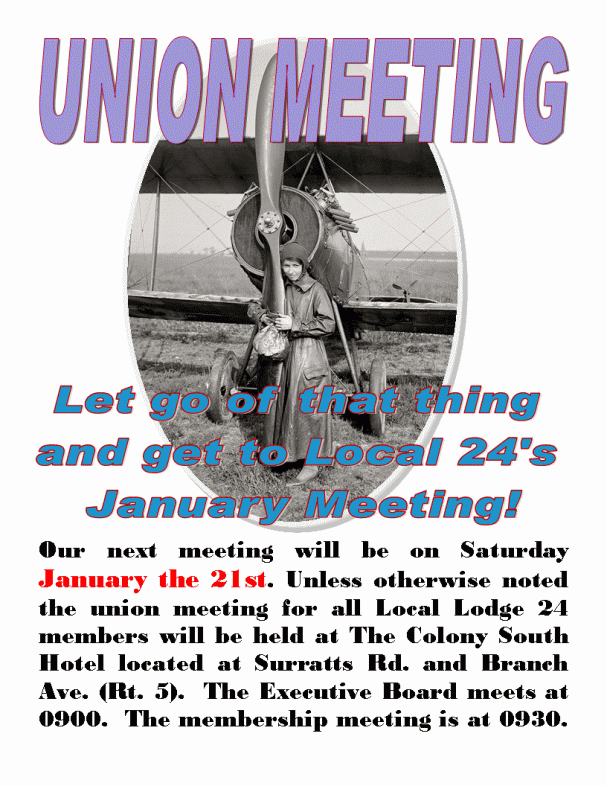
 wards hear this on almost a daily basis. As a union member the ability to grieve is one of our most important rights. But what is a grievance? Can I grieve this? What do I have to know before filing a grievance are questions you might be asking yourself.
wards hear this on almost a daily basis. As a union member the ability to grieve is one of our most important rights. But what is a grievance? Can I grieve this? What do I have to know before filing a grievance are questions you might be asking yourself.